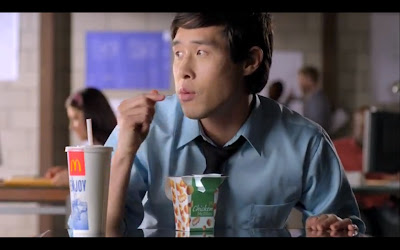 From Bleacher Report…Jeremy Lin: Why Are We Letting Jason Whitlock off the Hook for His Tweet?
From Bleacher Report…Jeremy Lin: Why Are We Letting Jason Whitlock off the Hook for His Tweet?By Trevor Medeiros
As an Asian-American who has spent his entire life growing up in an urban setting, hearing demeaning ethnic stereotypes hurled in my direction is something I’ve become totally accustomed to.
“Hey, Yao Ming, pass the ball!”
“Don’t get all Jackie Chan on me!”
“Does he speak English?”
Maybe it’s because of my non-confrontational demeanor or because I’m so used to it that I usually don’t care when I hear this Asian-American stereotypical rhetoric staining my eardrums. And that’s why I wasn’t exactly outraged when I read Fox Sports columnist Jason Whitlock’s Linsensitive tweet (see, I can get in on the clever wordplay games, too!) pointed towards New York Knicks point guard, NBA sensation and Asian-American Jeremy Lin recently.
But the more I think about the aftermath of Whitlock’s tweet, the more I’m surprised that he isn’t receiving more backlash for his insulting one-liner.
Let’s get this straight: Whitlock has made a habit out of adding comedic flair and introducing issues of race to his columns for years.
However, this doesn’t give Whitlock the right to tweet a misguided joke that essentially degrades an entire race of human beings. And Whitlock followed that up by posting a half-hearted, half-assed apology, only after a group with a bit of ethos (the Asian American Journalists Association) called him out on it.
And yet, as I write this, it seems like Whitlock is on the verge of emerging scot-free from this incident, which baffles me, to say the least.
What if it was a white columnist, say, Skip Bayless, and not the African-American Whitlock, tweeting about the size of Lin’s package? Call it prior precedent, journalistic intuition or simply common sense, but something tells me that Bayless would find himself in much hotter water than Whitlock finds himself in today.
(Full disclosure: Whitlock’s work was once prominently featured on Bleacher Report’s website, via Foxsports.com.)
I bring up prior precedent for the fact that Whitlock’s peers have been reprimanded in the past for their own racially-insensitive comments. In 2008, Golf Channel anchor Kelly Tilghman was suspended for two weeks for suggesting that some golfers should lynch Tiger Woods.
And in case you think I’m insinuating that only white journalists are punished for insensitive remarks, let me remind you of the Juan Williams incident. In 2010, the African-American Williams of Fox News was fired from National Public Radio over stereotypical comments directed towards Muslims.
Now, I’m not calling for Whitlock’s head on a silver platter. Too many times media outlets overact when one of their employees utter verbal gaffes.
But to punish the likes of Tilghman and Williams while letting Whitlock off the hook is hypocritical at best and racist at worst. It will tell me that you can expect to be punished when you bash African-Americans (like Tilghman did) and Muslims (like Williams did), but it’s OK to take to social media and talk in not-so-complimentary terms about an Asian-American point guard and his genitalia.
I told you that I don’t usually care all that much when I hear anti-Asian stereotypes flung about carelessly. But if supposedly reputable journalists like Jason Whitlock can fling them about carelessly and without consequences, maybe I—and much more of the public—should start caring after all.









